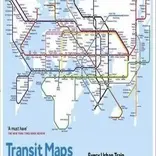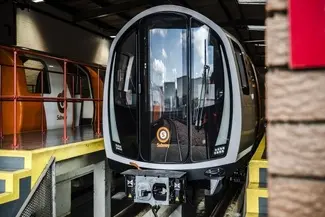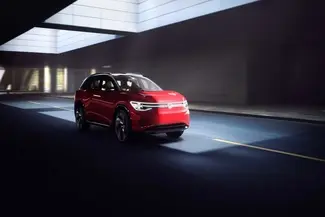13 reasons why we're not ready for our motoring future

Our safer, cleaner autonomous motoring future is slowly homing into view. Advancements in autonomous driving, data gathering and communications technology are pushing that future forward, but we're not totally convinced that our world is ready yet.
Read on to find out why...
1. The fun will get squeezed out
The future is being driven by people who don't much like cars. Their priorities – hard to argue with – are reducing pollution, reducing congestion and reducing accidents. But where's the fun in that? Speaker after speaker at the FT Future of the Car summit highlighted the trends that are shaping tomorrow's cars. Clean power, connectivity (vehicles talking to one another and to roadside infrastructure) and car sharing were the hot topics.
The final speaker of the day, McLaren CEO Mike Flewitt, swam against the tide by championing driving pleasure: 'I don't envisage a world that is ever fully autonomous. You can imagine downloading Fernando Alonso's perfect lap around Silverstone, have the car drive you on that perfect lap automatically, so you can learn from that. And then you drive yourself.'
That's a great use of new technology.
2. The world's unpredictable
Maarten Sierhuis, director of the Nissan Research Centre, said: 'Reasoning and learning is not simple. From the raw data, we need to perceive the world and understand the obstacles. It's hard [for a machine] to distinguish a human standing still from a lamppost. Then the system needs to predict what the object will do next and what every other object will do.'
Real-world driving involves quick decision making that would require some extremely sophisticated programming. For instance, going through a red light because you've been waved through by a roadworker or a policeman. 'When you drive, how many times do you break the law in traffic? More often than you think.'
Drawing on his experience working with NASA, he believes that you need to keep humans in the loop, supervised by something like air traffic control.
3. Tech can't stop it raining
When it comes to self-driving, there's no hiding place. Either it works or it doesn't. And sensors don't always work. If your car has a reversing camera, you'll know how its performance is reduced by rain or dirt. And poor weather is no friend of digital radio reception. Daimler's Wilko Stark admits: 'Autonomous cars are highly weather dependent. In snow, it doesn't really work.'
4. The rise of the mega-city
All the projections point to the global population continuing to increase, with a disproportionate number of those people ending up in cities, many of which are already jammed up with traffic. Legislation can force cars to get cleaner, but clean traffic is still traffic.
The solution is likely to involve alliances between car makers, city planners and public transport providers, with their competing agendas. But of course not everybody will live in cities, mega or otherwise. How connected will rural Norfolk or Cornwall ever really be, let alone Siberia or Bolivia?
5. Road building needs reinventing
It's no coincidence that a lot of trials of self-driving cars take place in modern cities such as Milton Keynes, which has well surfaced roads laid out on a grid system. Much of the rest of the world looks nothing like this. Leicester, just an hour up the M1, would be a much harder challenge, with higgledy-piggledy parking, intermittent cycle lanes and some hilariously overburdened roundabouts.
Roads themselves are still built in a way that would be recognisable to the Ancient Romans. They're more or less okay for what's currently being asked of them, but to unleash the full potential of the technology new roads should be brimming with sensors.
6. Mapping must be perfect
GPS has made a massive difference to our daily lives. But even its biggest advocates have to admit it isn't perfect.
Connectivity relies on GPS – along with radar, lidar and other sensors – to know where you are in relation to other road users. All the while there's a driver at the wheel, paying attention, its hiccups can be overridden. But subtract the driver and all those systems need to be flawless.
And there needs to be global accord and co-operation, so that everybody agrees what's a one-way street, what's a train track and what's a river.
7. Dealers must adapt or die
a) Many of today's teenagers won't ever get a driving licence or own a car. They like to lease a service, or get it free.
b) Cars need less and less maintenance.
c) The increasing use of electronic safety aids is already hugely reducing the number of accidents.
Put these three trends together and you get a picture of a world that doesn't require traditional car dealers.
8. Range anxiety is a deterrent
Range anxiety will slow down the adoption of electric cars, and will cause concern among those who have just got their first hybrid or electric car, as huge numbers will over the next few years. They're going to want a lot of reassurances, preferably backed up by charging facilities on every street corner.
Ford has teamed up with its German rivals to build ultra-fast charging stations across Europe. But even so that might not be enough to ease the worries of those going green for the first time.
Erik Fairbairn of electric car charging specialists POD Point urged: 'Don't map your old behaviour on to new technology.' Most electric cars start the day fully charged – whereas petrol or diesel cars never start the day fully fuelled. Fairbairn's research showed that people over-worry about the availability of en-route charging stations, then in practice rarely use them.
9. Batteries don't grow on trees
Heavy, volatile and expensive, electric vehicle batteries are made using materials found in interesting places such as China and Chile. If the Chinese and Chileans want to keep all their graphite and lithium to themselves, what then?
10. It's all hugely expensive
For existing car manufacturers, there's going to be a period when they're simultaneously refining their current line-ups of petrol and diesel cars and developing hybrids and full electric cars.
Some visions of the future would also require a lot of road resurfacing, and the installation of charging points at workplaces, in shopping centre car parks, at filling stations and for domestic use. Expect more toll roads and congestion charges. And in-car advertising will be HUGE once cars can drive themselves.
11. Privacy is in jeopardy
Cars are already generating, storing and sharing huge amounts of data. That's only going to increase. There's a big (and potentially extremely dull) battle coming up about who owns that data and what they can do with it.
Connectivity only works if the location and speed of your car are known at all times. But that also means your location is known at all times – by the car manufacturer, the GPS and internet providers, by the highway authorities, and others. Who owns what? What can they do with it? A lot of laws need drawing up very quickly.
Stephan Appt of law firm Pinsent Masons said: 'Personal data needs to be protected, technical data needs to be shared. One can become the other – you are always on the edge of a data breach.'
The legal systems of the world are going to struggle to keep up with the claims and counter-claims that will inevitably arise as self-driving tech goes through a glitchy phase of prangs and missed appointments. Law-makers in different countries will doubtless come up with incompatible solutions.
Lawyers and insurance companies will, as ever, do well out of all this.
12. We keep buying stuff
Amazon and other online retailers have increased the number of van journeys: in 2016, up by 3.8% to 78.2 billion miles in the UK. The other great users of white vans – plumbers, plasterers, electricians – are also thriving. In both cases, they need to get to your front door, without delay.
The future isn't just about commuting, shopping and leisure use.
13. Car sharing is easier said than done
The case for car sharing is compelling: most cars stand idle most of the time. But implementing it is far from simple. There are two routes: pairing drivers with passengers – a modern form of hitchhiking – and pairing unused cars with carless drivers.
Fej Shmuelevitz of Waze, a traffic and navigation app, told the Connected Hub conference in Barcelona: 'The Waze navigation app knows where the driver is, their route, the infrastructure. The challenge is to pair the driver with a potential rider who wants to be collected along that route and then dropped off. We're trying to solve that technical challenge and get to understand the rider as well as we do the driver.'
French company Drivy specialises in peer-to-peer car rental. It has 40,000 cars across France, Germany, Spain, Belgium and Austria and a million members paying on average £25 a day to rent a car. Founder Paulin Dementhon sees 'young urbans who are asset light and time poor' as his target audience. 'They want the freedom and convenience of car mobility without the hassle of ownership,' he said.















![AIRBUS A380 [MORE THAN 600 PASSENGER’S CAPACITY PLANE]](https://cdn.tinn.ir/thumbnail/4jCp4EQvCU0b/IjHVrSYQrIAqIzXuTzADR7qLYX4idQT4nfq__26E5SCUPLMqfhWkWajvuO9Wfq1ql1TjV4dhkrHliNQU82kMpo2NNftT_NGEwHc9KXtN_rk731bmifa2IQ,,/airbus-a380-structure1.jpg)

Send Comment